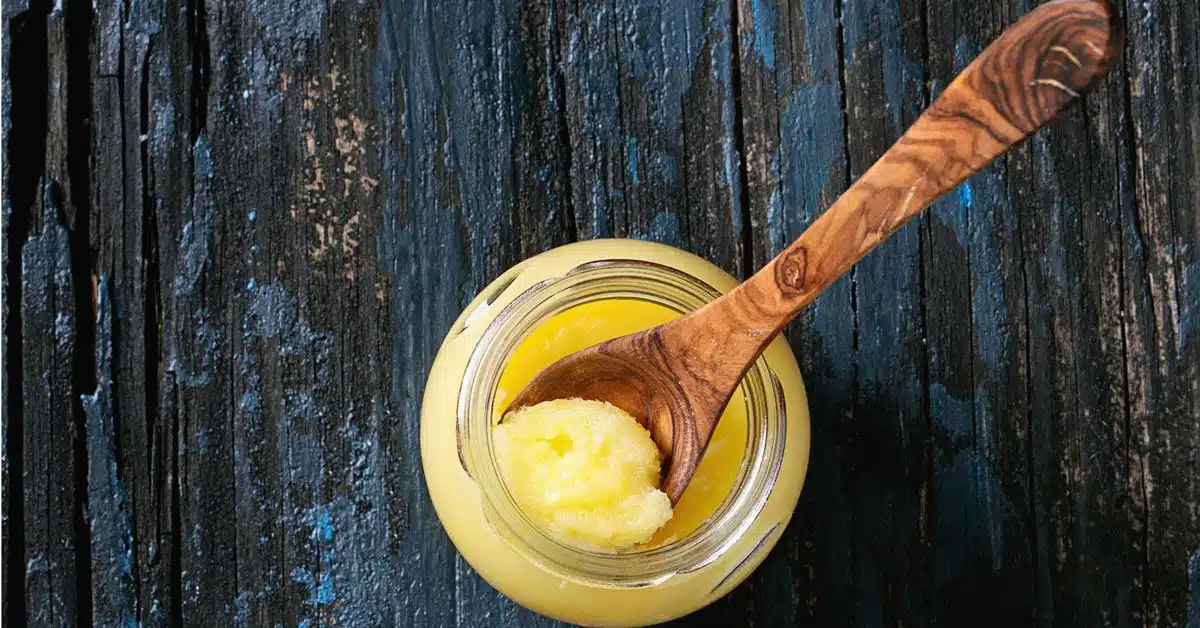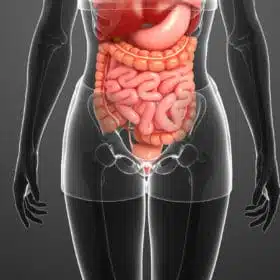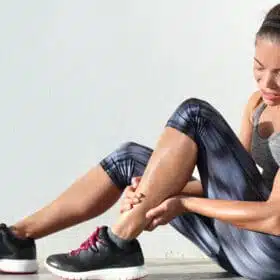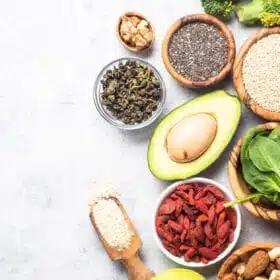It wasn't so long ago that fat was considered the ultimate figure and health killer in this country. It's a good thing that word has now got around that the exact opposite is the case, especially as the right fats are essential for our organism's survival. The Indians go one step further, as healthy fats were not only used as food over 2,000 years ago, but were also known to have healing properties. One such "miracle cure" is the "Ghee". But what is it all about? What are the benefits of ghee? And how is ghee used?
What is ghee actually?
Exotic products sell particularly well in the fitness and health sector, as they always have that certain magic of a miracle cure. Ghee is no different, as this special fat has been used in Asian medicine since time immemorial and is also known as the "golden elixir" due to the healing properties attributed to it.
But ghee is nothing so special. The bottom line is that it is simply clarified butter or clarified butter. From a purely technical point of view, ghee is nothing more than almost 100 percent pure fat (approx. 99.5 percent to be precise), which is free from lactose and milk protein. This also distinguishes it from butter, which we also like to use in our cooking.
What is the big difference between ghee and butter?
In terms of macronutrients, ghee is distinguished from butter primarily by the absence of carbohydrates and proteins and by the fact that it is almost pure fat. In terms of fat composition, butter and ghee are similar.
As you would expect, both consist primarily of saturated fatty acids, which, contrary to popular belief, are also healthy in moderate amounts and are needed by our body. In addition, both butter and ghee contain significant amounts of vitamins A, E and K as well as important minerals such as iron, phosphorus, magnesium, calcium and sodium. So it seems that ghee is nothing so special after all, is it?
4 reasons why ghee has the edge over butter
Well, even if the nutritional differences are smaller than initially assumed, in practice there are some advantages to ghee. Due to the absence of milk proteins and lactose, ghee is obviously a much better alternative for people with lactose intolerance. This is also important due to the fact that butter is significantly healthier than margarine, which until a few years ago was considered "particularly healthy". The only thing that matters here is the dose.
The fact that ghee has played an important role in Ayurvedic medicine for thousands of years is not least due to the fact that ghee does not form free radicals in the cells of your body. These attack the cells, weaken the immune system and, in addition to ageing the skin, can even promote disease. No wonder ghee has a long tradition in India as an anti-ageing product.
Those who like to fry vegetables, fish and meat in a particularly aromatic way should also use ghee or clarified butter rather than classic butter. Unlike butter, ghee can be heated up to 205 degrees Celsius, while the smoke point is already 175 degrees Celsius. This not only avoids potentially harmful trans fatty acids, but also reduces the likelihood of burns from splattering fat, especially as ghee contains hardly any water that could evaporate.
But that's not all, because even in ancient writings, ghee is said to have a number of tangible health benefits. According to this, ghee not only helps to keep the skin young "inside and out", but also has a positive effect on general cell regeneration. It also has properties such as stimulating the appetite, activating the metabolism, alleviating digestive problems, improving wound healing, having an anti-inflammatory effect and, last but not least, improving memory. A real superfood.
Can ghee deliver what it promises from a health perspective?
First of all, we should realize that ghee is not a miracle cure, but basically just a food that has been used in our country for thousands of years. As it is pure fat, and therefore of course a real calorie bomb, we should follow Paracelsus' advice when consuming ghee, as we would with almost any other food or dietary supplement: "The dose makes the poison!"
When consumed in moderation, ghee can actually have a positive effect. According to leading Ayurveda experts, one teaspoon of ghee per day is enough for a person of average build to benefit from the positive effects. And it is precisely these effects that we now want to look at in detail. You don't even have to believe in the Ayurveda concept, which admittedly seems a bit like hocus-pocus, to benefit from ghee or clarified butter.
The 6 most important effects of ghee
1. ghee helps with detoxification
Ghee has been used in Ayurveda for detoxification purposes since ancient times by mixing it into special tinctures and drinks for internal use. However, you don't necessarily have to follow the exotic rituals to benefit from the detoxifying effect. All you need to do is consume a little clarified butter regularly. In this way, both fat-soluble waste products and toxins can be eliminated from the body.
2. ghee has a rejuvenating effect
As already mentioned, free radicals have a negative impact on cells, damaging them and causing them to age more quickly. However, as free radicals are contained in many foods, a counterbalance is needed to counteract their effect. With its strong antioxidant effect, ghee is ideal here.
3. ghee can boost the metabolism
Feeling listless and tired? Then the cause may be a sluggish intestine, as this generally makes your metabolism work much more slowly. It's a good thing that the antioxidants and fatty acids contained in clarified butter boost your gut and therefore your entire metabolism. This is particularly important for athletes, because how else can your body efficiently metabolize the nutrients it receives?
4. ghee makes you more efficient
Ghee not only makes your intestines and metabolism more efficient, but also has a measurable effect on the performance of your gray cells when consumed regularly. In fact, ghee can increase your ability to concentrate, which naturally has a positive effect in many areas of life.
5. ghee inhibits inflammation
What the ancient Indians already knew over 3,000 years ago has now been confirmed by several scientific studies: Ghee or clarified butter has an anti-inflammatory effect. And this applies to both external and internal use. While external use on the skin can support the treatment of skin diseases such as couperose, for example, the anti-inflammatory effect of internal use is particularly noticeable in the gastrointestinal tract.
6. ghee calms the organism
It is interesting to note that the ingredients in ghee not only have a stimulating effect on the body, but also have a calming effect in the right places. Some studies indicate that the fatty acids contained in clarified butter can increase stress resistance. In future, this will probably no longer mean "wait and see and drink tea", but "wait and see and take ghee".
Make your own ghee with little effort
Anyone who knows their way around the supermarket will know that a 500 gram tub of clarified butter is anything but a bargain. It's much cheaper if you make your own clarified butter. And, who would have thought it, all you need is some butter.
- Take the butter and melt it in a pan. However, make sure that you only use a low flame on the stove so that the butter can melt slowly and gently.
- Then wait until the butter clarifies, i.e. until the water evaporates and the milk protein settles to the bottom of the pan. Important: Do not stir!
- After a good 30 minutes, the egg white will have completely settled to the bottom and the finished clarified butter will float to the top as a golden yellow liquid.
- Now pour the liquid lard through a cotton towel into a preserving jar.
- The finished ghee can then be kept for several months so that you can use it for cooking, baking and frying. To prevent mold from forming due to condensation, you should not store your finished clarified butter in the refrigerator.
How you can incorporate ghee into your everyday life
You can then use your homemade ghee in a variety of ways. Its high heat resistance makes it an excellent substitute for butter in the kitchen when frying meat, fish and vegetables. This is also where lard really comes into its own as a flavor carrier, giving your dishes a special kick. Accordingly, it is also suitable wherever your grandmother works with the obligatory "knob of butter". For example, to make a risotto particularly creamy.
Alternatively, you can use ghee as a substitute for margarine when baking or heat it up in a pan with Mediterranean spices to make a kind of spiced butter. As you can see, there are virtually no limits to your creativity.




